Kingston KC2500 M.2 NVMe SSD review: perfect storage for high-performance PCs
Rapid read and write speeds, plenty of storage options and easy installation make the Kingston KC2500 SSD a winner
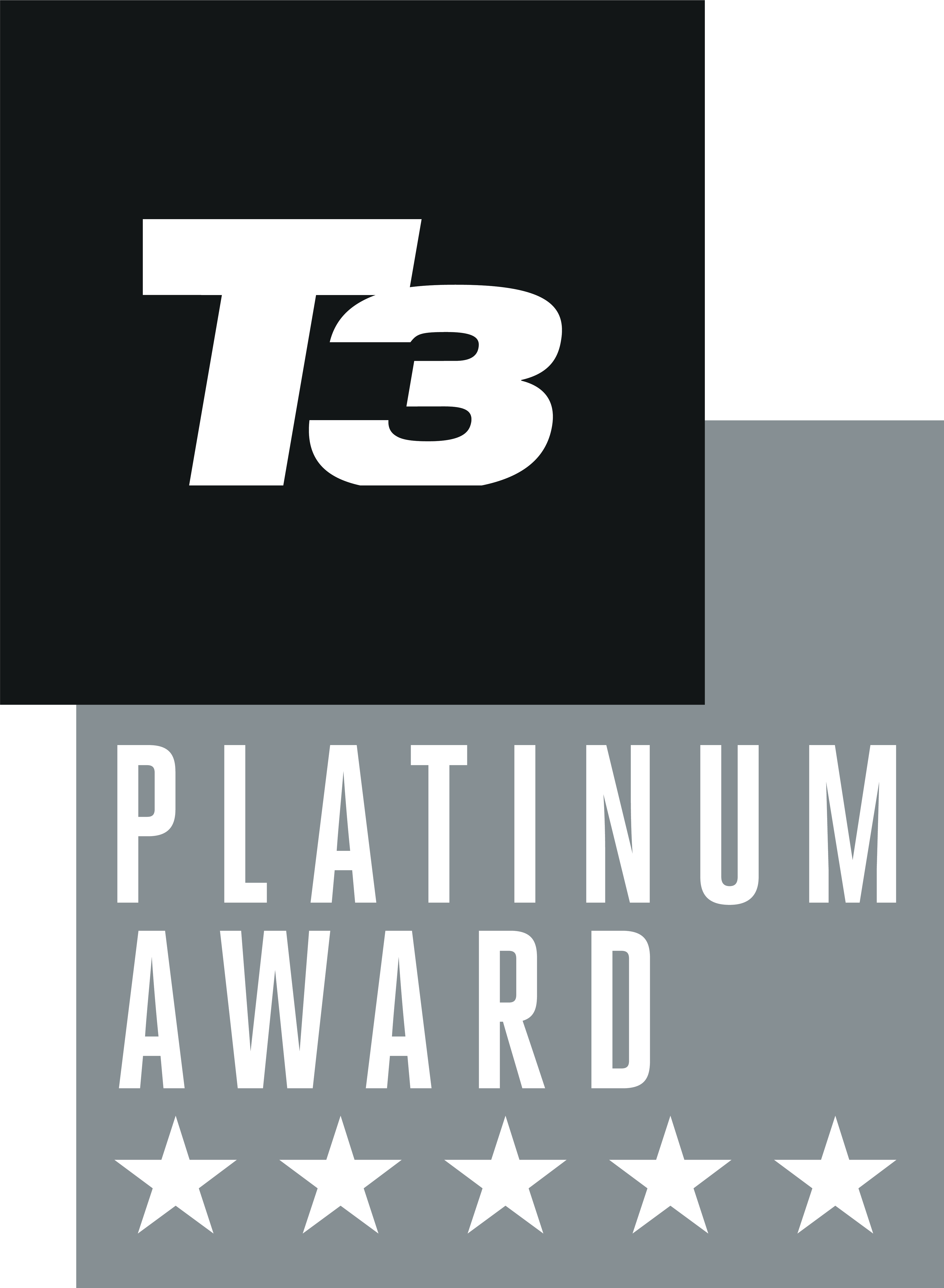
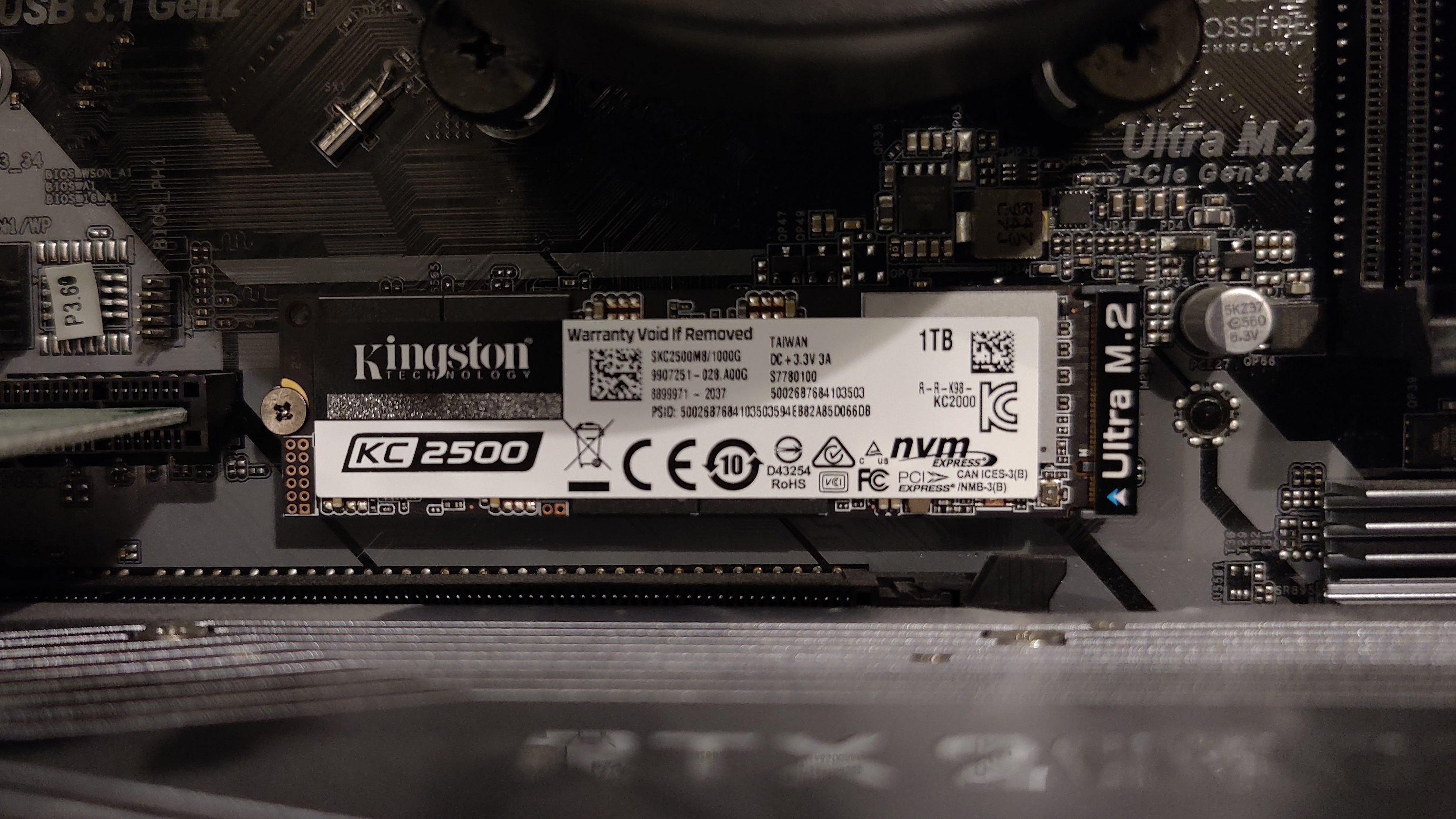
With incendiary read and write speeds the KC2500 is the ideal partner for high performance gaming PCs and workstations.
-
+
Rapid read and write speeds
-
+
Plenty of capacity options
-
+
Easy to install
-
+
Stylish black PCB
-
-
More expensive than other brands
Why you can trust T3

Cutting straight to the chase, the Kingston KC2500 is a fantastic piece of kit and thanks to its excellent performance, storage options and ease of installation, is now our number one M.2 NVMe SSD choice in T3's prestigious best SSD buying guide.
The reasons for this are explained in greater detail below. There is also more information about storage capacities and what the Kingston KC2500 NVMe SSD is like to install, as well as the best prices on it available today.
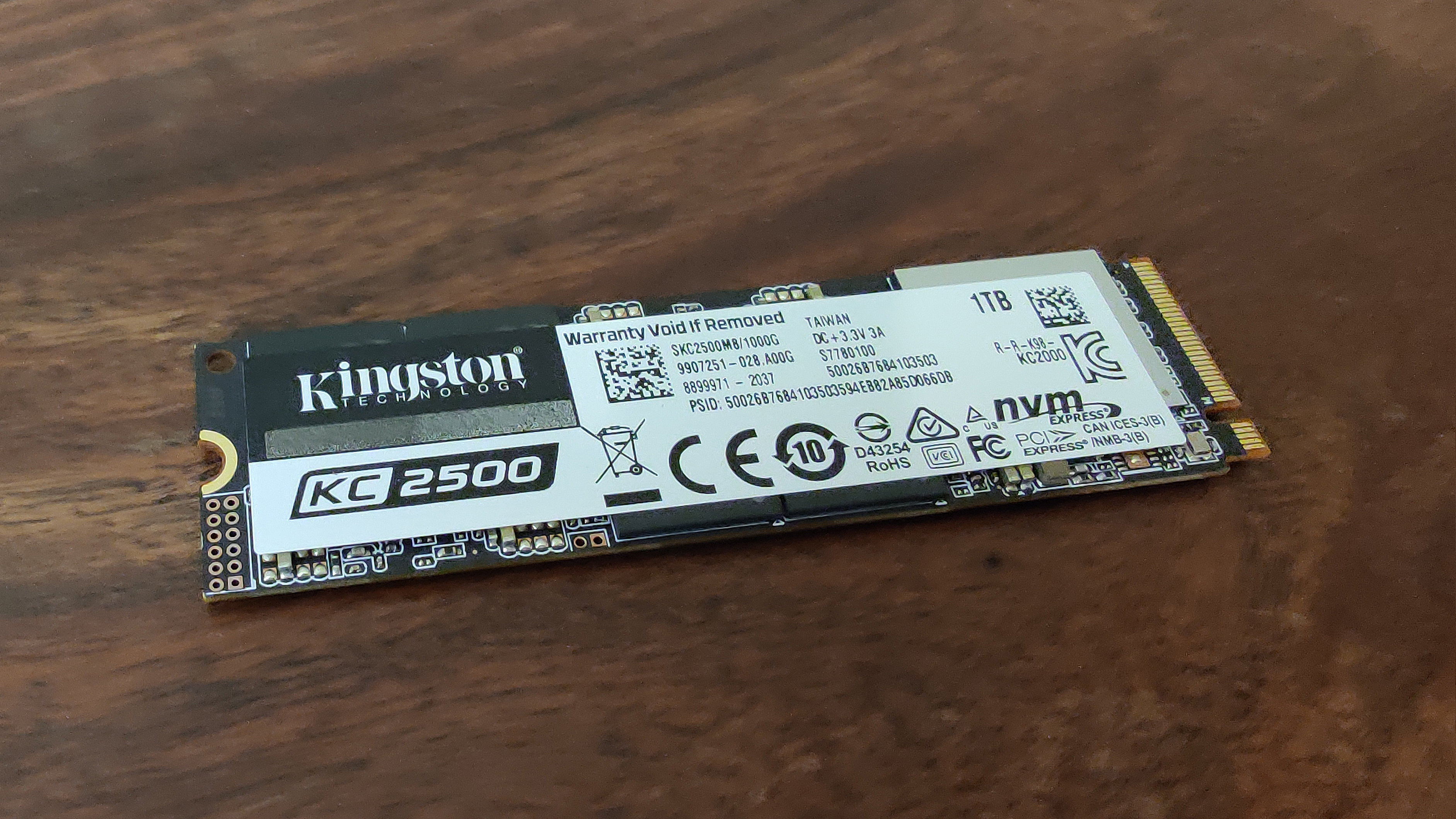
How the Kingston KC2500 arrives out of its packaging. The black PCB looks class.
Kingston KC2500 M.2 NVMe SSD review: price and capacity
The Kingston KC2500 M.2 NVMe SSD is available right now from Newegg, Amazon, Scan, Walmart, and many more stores, too.
The drive comes in four different capacities, starting at 250GB and running up through 500GB, 1TB and topping out at 2TB.
The T3 test unit was the 1TB variant of the Kingston KC2500.
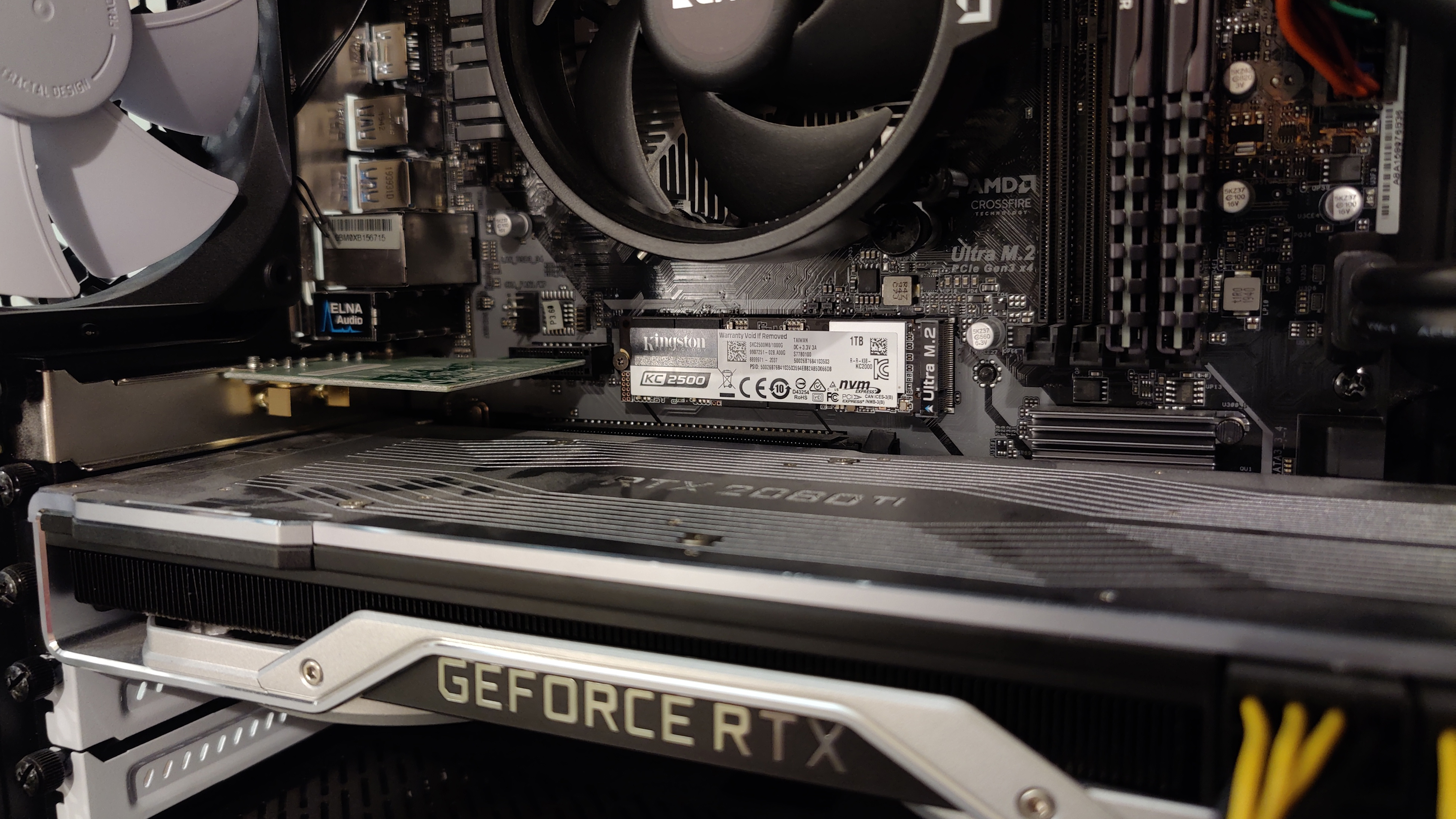
The Kingston KC2500 installed in the T3 test rig. The motherboard is an ASRock B450M Pro 4.
Kingston KC2500 M.2 NVMe SSD review: installation
The Kingston KC2500 M.2 NVMe SSD comes in a simply card-backed plastic casing, which can be opened by simply tearing the cardboard.
One the KC2500 is out the next step is to unplug and open your PC case or laptop and to find your M.2 port. On the ASRock B450M Pro 4 motherboard T3 used this was located below the CPU dock and above the top-most PCIe port.
Get all the latest news, reviews, deals and buying guides on gorgeous tech, home and active products from the T3 experts
Installation requires simply slotting the KC2500 into the M.2 port and then securing flat against the motherboard with a tiny fixing screw. This screw does not come in the KC2500 package but instead will be shipped with your M.2 port-packing motherboard of choice.
Be warned, you will need a very small screwdriver head to get purchase on this most likely, so come prepared. If you don't have a tiny screwdriver set then the tip of knife can be used but it is not ideal.
Once slotted in place simply close your PC or laptop case, plug everything back in, and then turn your system back on.
The last step is to initialise the drive. To do this, wait until you are in Windows and then search for Disk Management in the search box. Then simply select the drive in the menu of drives, click on it, and then select "initialize disk".
All told it took T3 10 minutes to have the Kingston KC2500 M.2 NVMe SSD up and running.
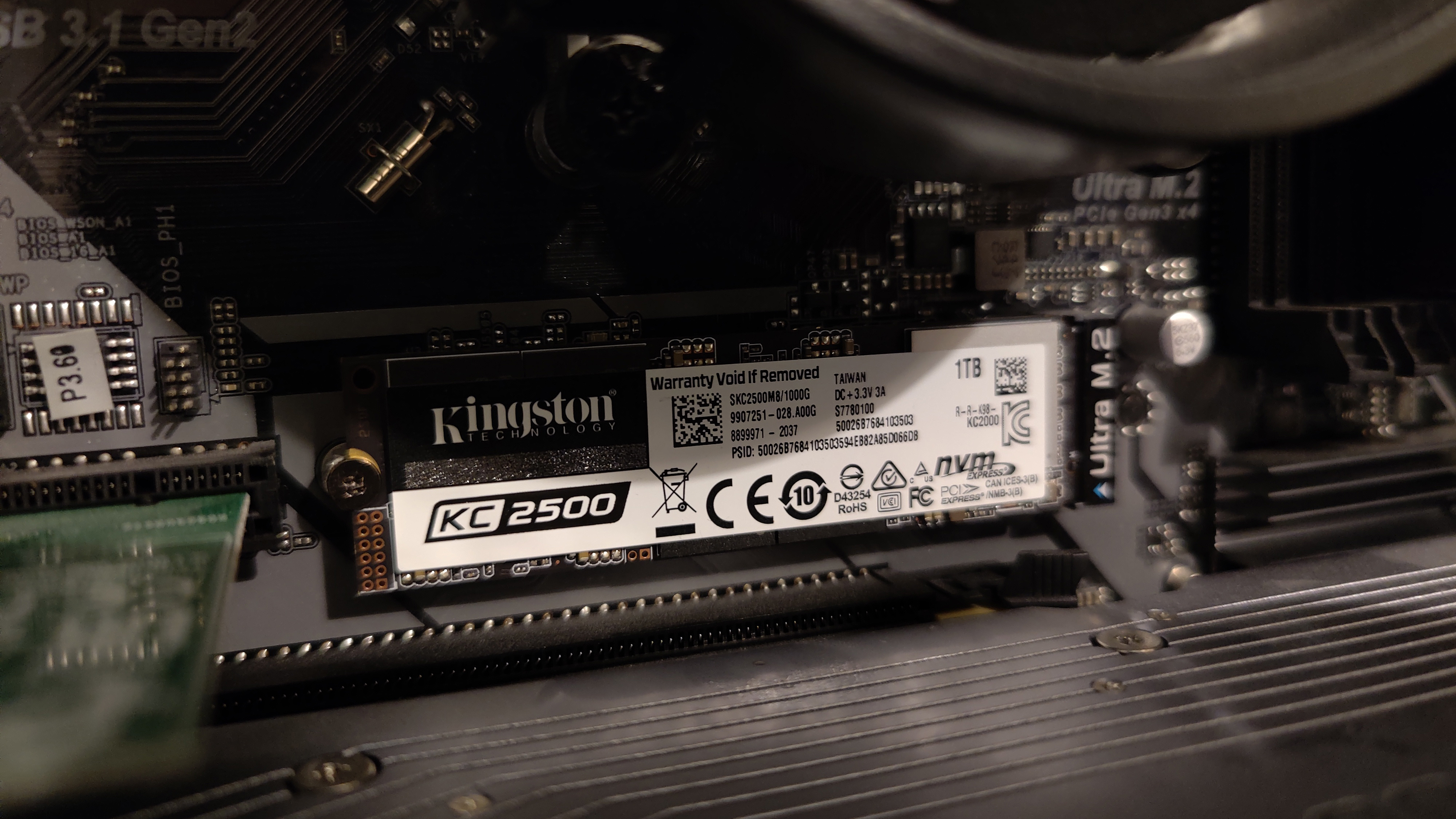
Installing the KC2500 into the T3 test rig took a matter of minutes.
Kingston KC2500 M.2 NVMe SSD review: performance
With the Kingston KC2500 M.2 NVMe SSD offering on paper a maximum read speed of 3,500 MB/s and a maximum write speed of 1,200 MB/s, T3 was very excited to benchmark the drive and see what sort of speed we could get with out system.
The Windows 10 installation drive on the T3 test rig is a Crucial MX300 SSD (not M.2 NVMe), which has a much lower theoretical maximum read speed of 530 MB/s and 510 MB/s write speed, so the idea of installing this new drive and then running games and core applications off it definitely appealed.
And, as you can see in the below image, we were not to be disappointed.
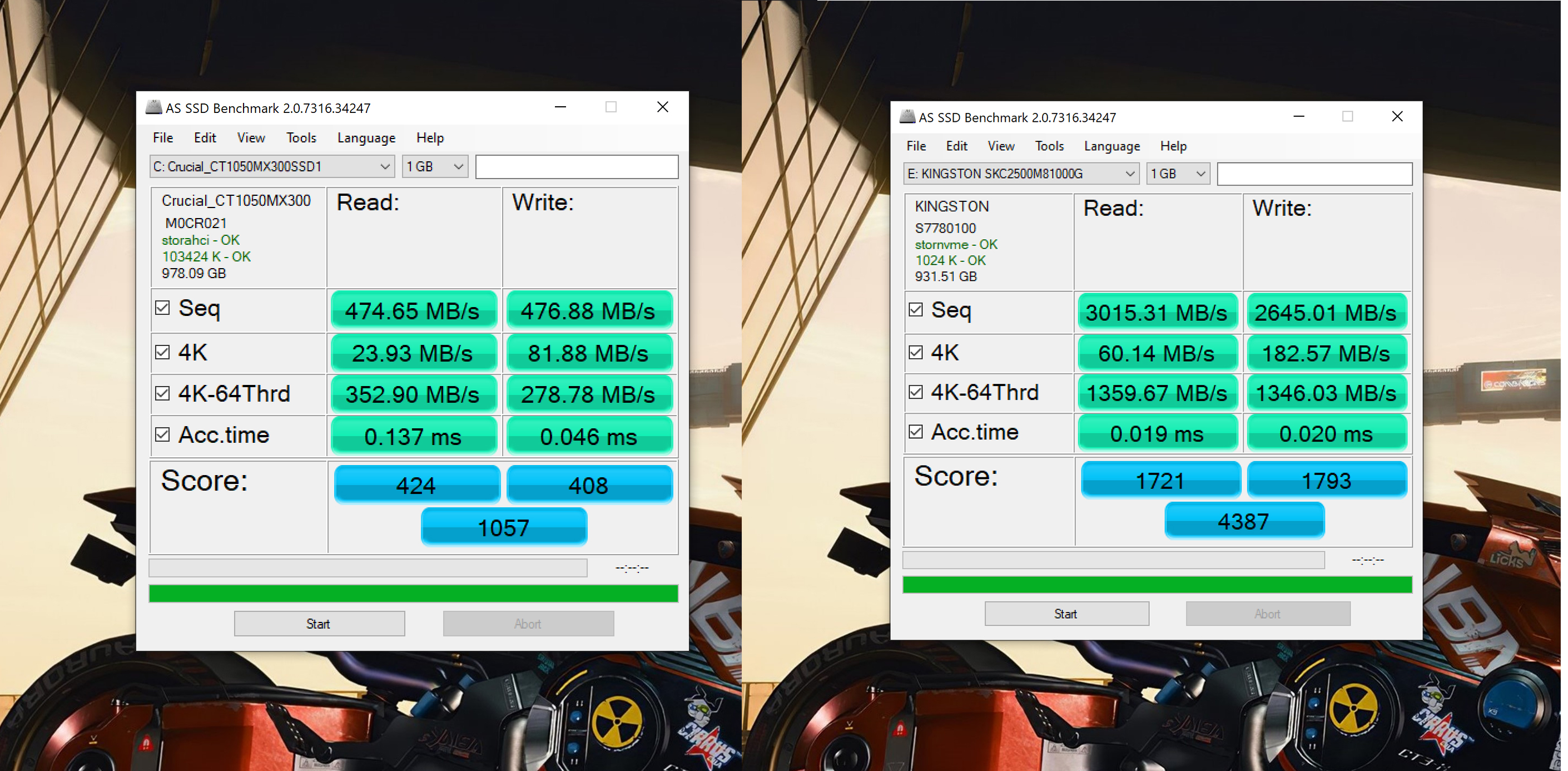
The Crucial MX300 SSD's benchmark scores on the left, and the Kingston KC2500 benchmark scores on the right.
Using the SSD benchmark tool AS SSD Benchmark, the scores the Kingston KC2500 delivered with orders of magnitude superior to the Corsair drive across the board.
In a sequential read and write speed the Corsair MX300 SSD posted scores of 474.65 MB/s and 476.88 MB/s respectively, while the Kingston KC2500 racked up an incendiary 3,015.31 MB/s read and 2,645.01 MB/s write. Yes, you read that right – we're talking over six times as fast.
This dominance extended through the random 4K read/write test, too, with the Kingston KC2500 posting 60.14 MB/s read and 182.57 MBs write compared to the Corsair MX300's much lower 23.93 MB/s read and 81.88 MB/s write.
In all of AS SSD Benchmark's tests, the Kingston KC2500 came out top, easily, and got an overall score of 4,387, which absolutely dwarfs the Corsair MX300's score of 1,057.
The Kingston KC2500 is one seriously fast drive!
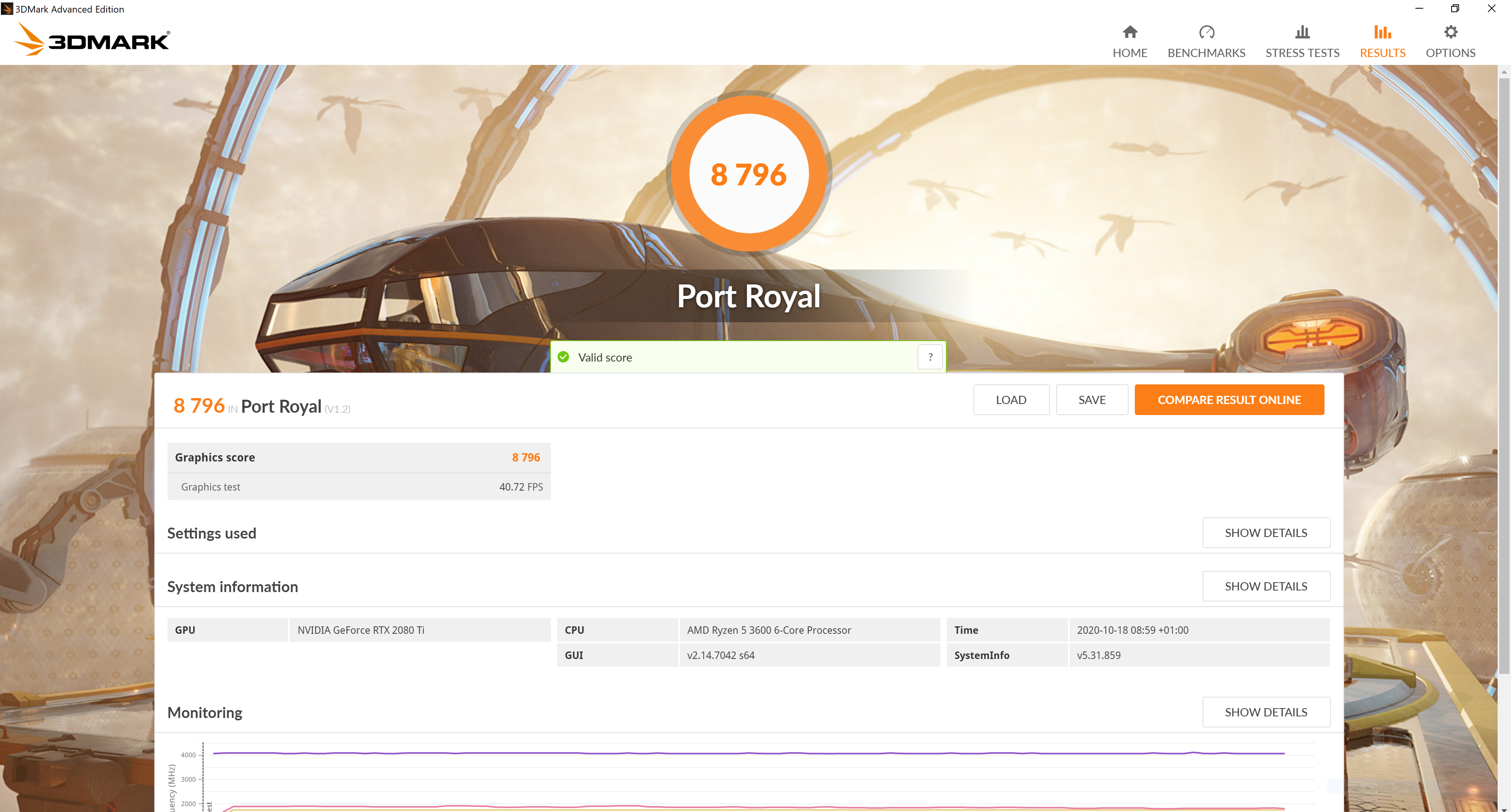
T3 ran 3D Mark's Port Royal ray traced graphics test with the KC2500 installed.
As T3 primarily uses its test rig for PC gaming, we decided we would see what this excellent performance equated to in terms of 3D benchmarks and directly in games, too.
We installed 3DMark on the KC2500 and ran the Port Royal ray tracing test. T3's test rig includes the above mentioned ASRock B450M Pro 4 motherboard, as well as 16GB of Corsair Vengeance DDR4 2666 RAM, an AMD Ryzen 5 3600 CPU and a Nvidia Geforce RTX 2080 Ti GPU.
These components are housed in a Fractal Design Define Mini case.
Naturally, the test loaded incredibly quickly and then proceeded to lodge a score of 8,796 and an average frame rate of 40.75 fps.
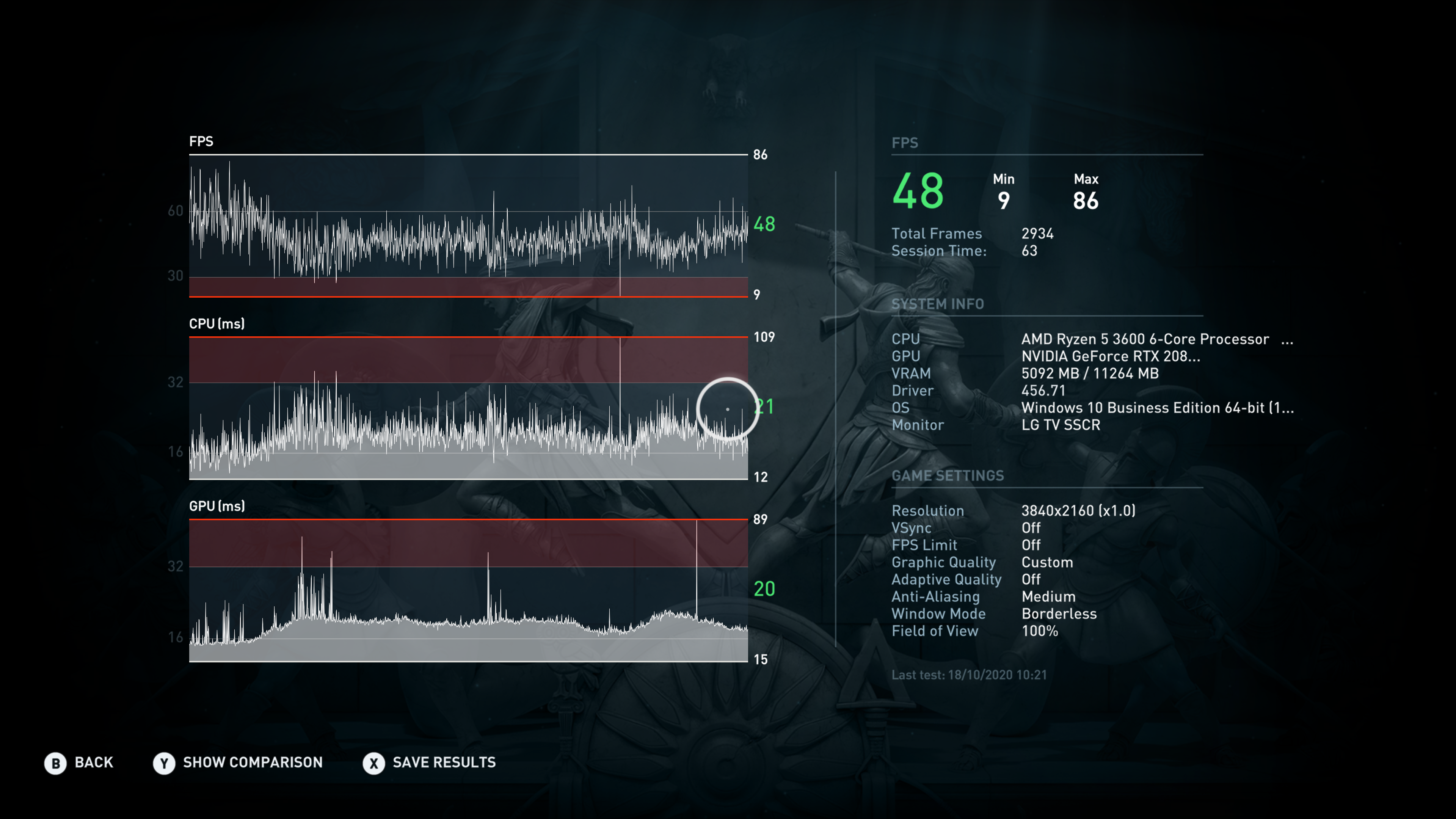
The Assassin's Creed: Odyssey internal benchmark T3 ran as part of its KC2500 test.
As for in-game performance, we decided to install Assassin's Creed: Odyssey on the KC2500 as it has a reputation for long loads and in-game jitter/delayed pop-in.
At a 4K resolution and high settings across the board, though, we were very impressed with how the game ran off the Kingston KC2500. Load times were markedly faster than on the Corsair MX300 and we saw no in-game loading issues as we traversed the open world of ancient Greece.
The in-game benchmark tool confirmed this quality, with the game returning an average of 48fps at those settings.
Naturally, even after installing a selection of AAA games and some applications, we still had over 60 per cent of the 1TB volume left, too. Rapid performance and, at this capacity, plenty of room for files, games and programs.
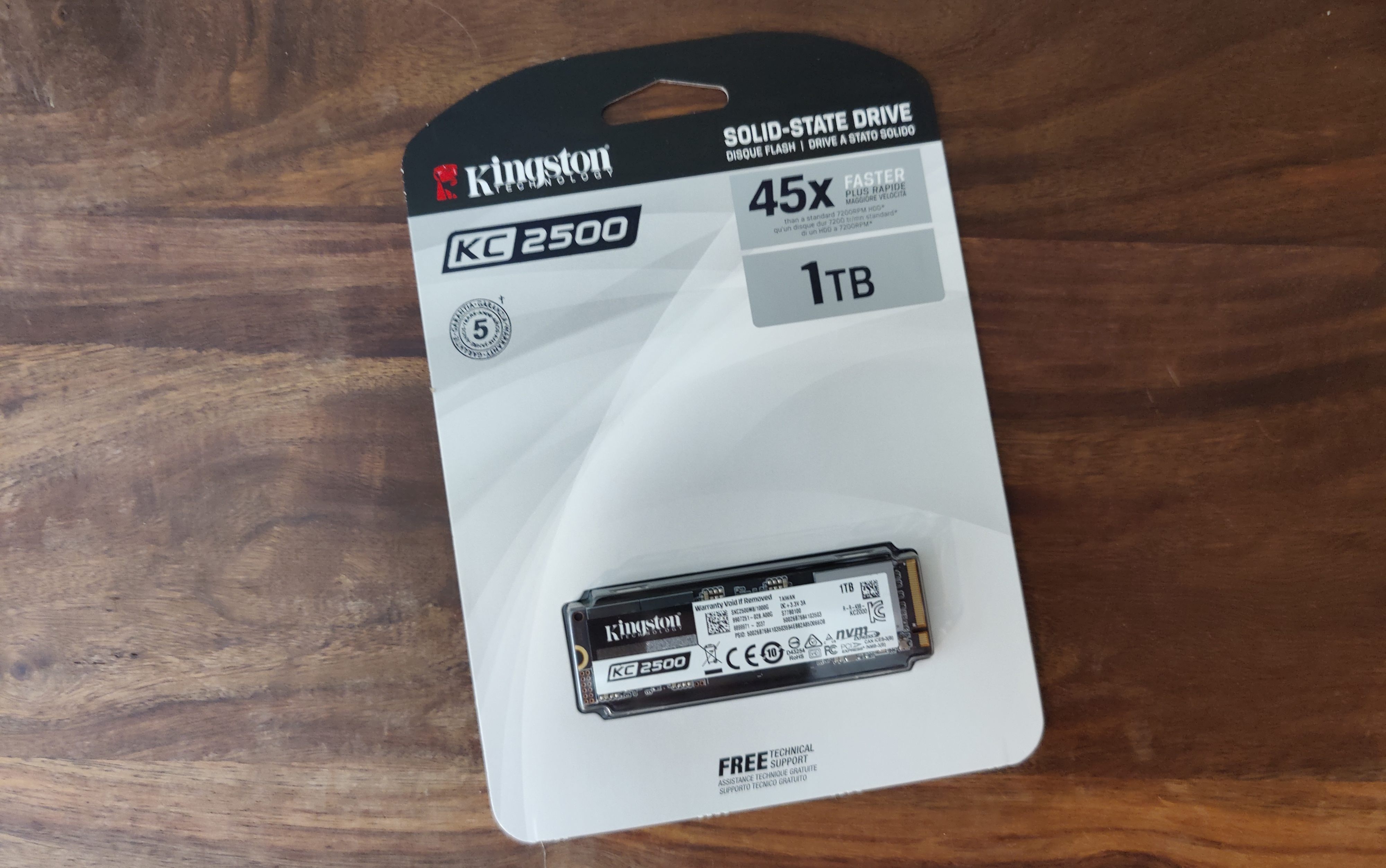
Overall, the Kingston KC2500 delivers superb performance and will be a great partner for any high-performance PC or laptop.
Kingston KC2500 M.2 NVMe SSD review: verdict
Overall, then, we were very, very impressed with the Kingston KC2500 M.2 NVMe SSD on review here at T3.
The speeds delivered while not at the absolute upper limit of what is supposedly possible with this drive, were incredibly high and absolutely smoked our system's non-M.2 NVMe SSD from Corsair across the board.
Installation was a piece of cake, too, and we also really like the black PCB that he Kingston KC2500 is built on, too. It looks understated and class.
And performance in-game or in-app backed up what the benchmarks said. Stick your OS on this drive and it will fly.
Yes, there are cheaper drives at these capacities up for grabs right now, but if you want the best speeds and quality in your system, then the KC2500 should be the first range of NVMe SSDs you consider.

Rob has been writing about computing, gaming, mobile, home entertainment technology, toys (specifically Lego and board games), smart home and more for over 15 years. As the editor of PC Gamer, and former Deputy Editor for T3.com, you can find Rob's work in magazines, bookazines and online, as well as on podcasts and videos, too. Outside of his work Rob is passionate about motorbikes, skiing/snowboarding and team sports, with football and cricket his two favourites.